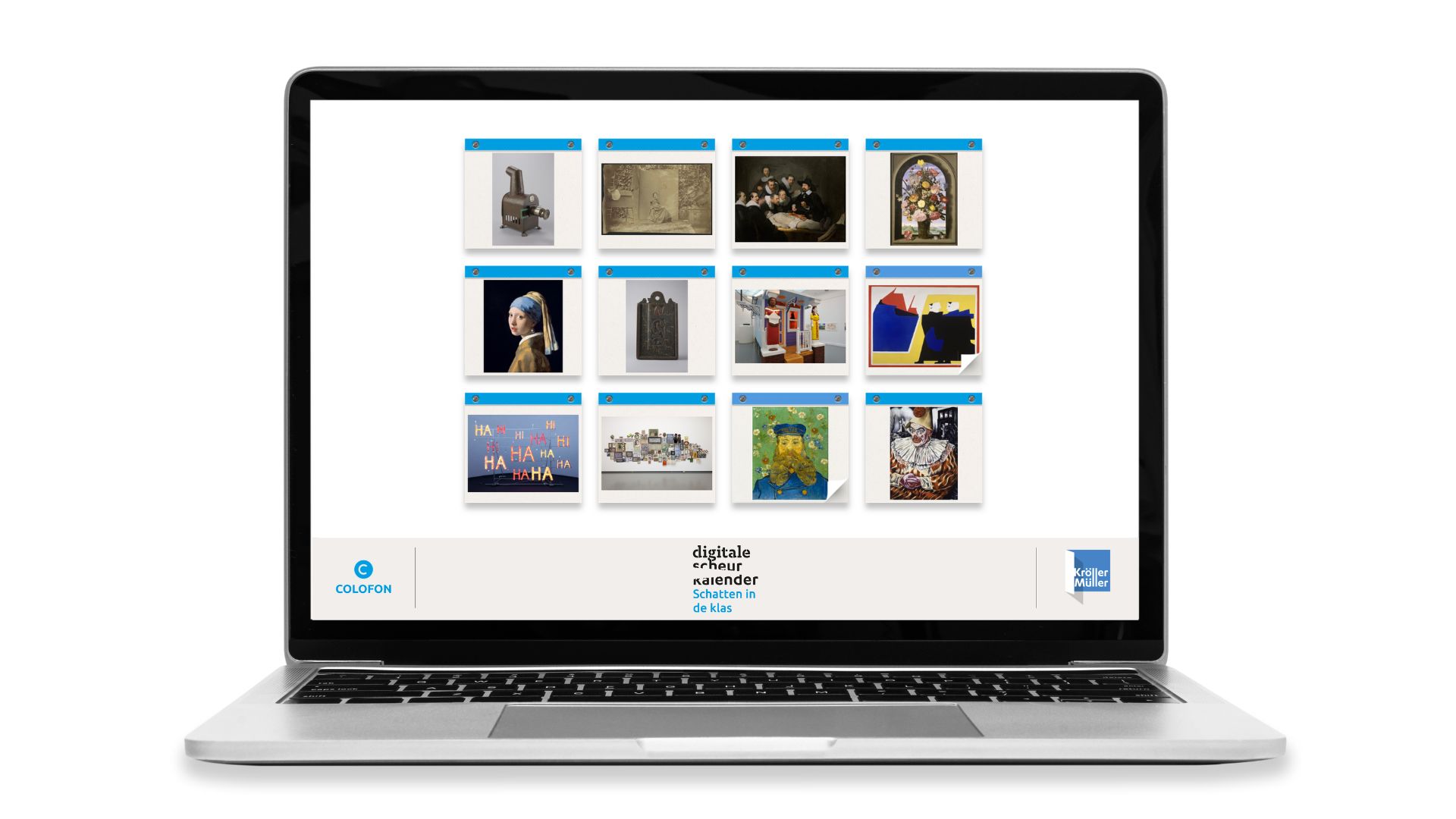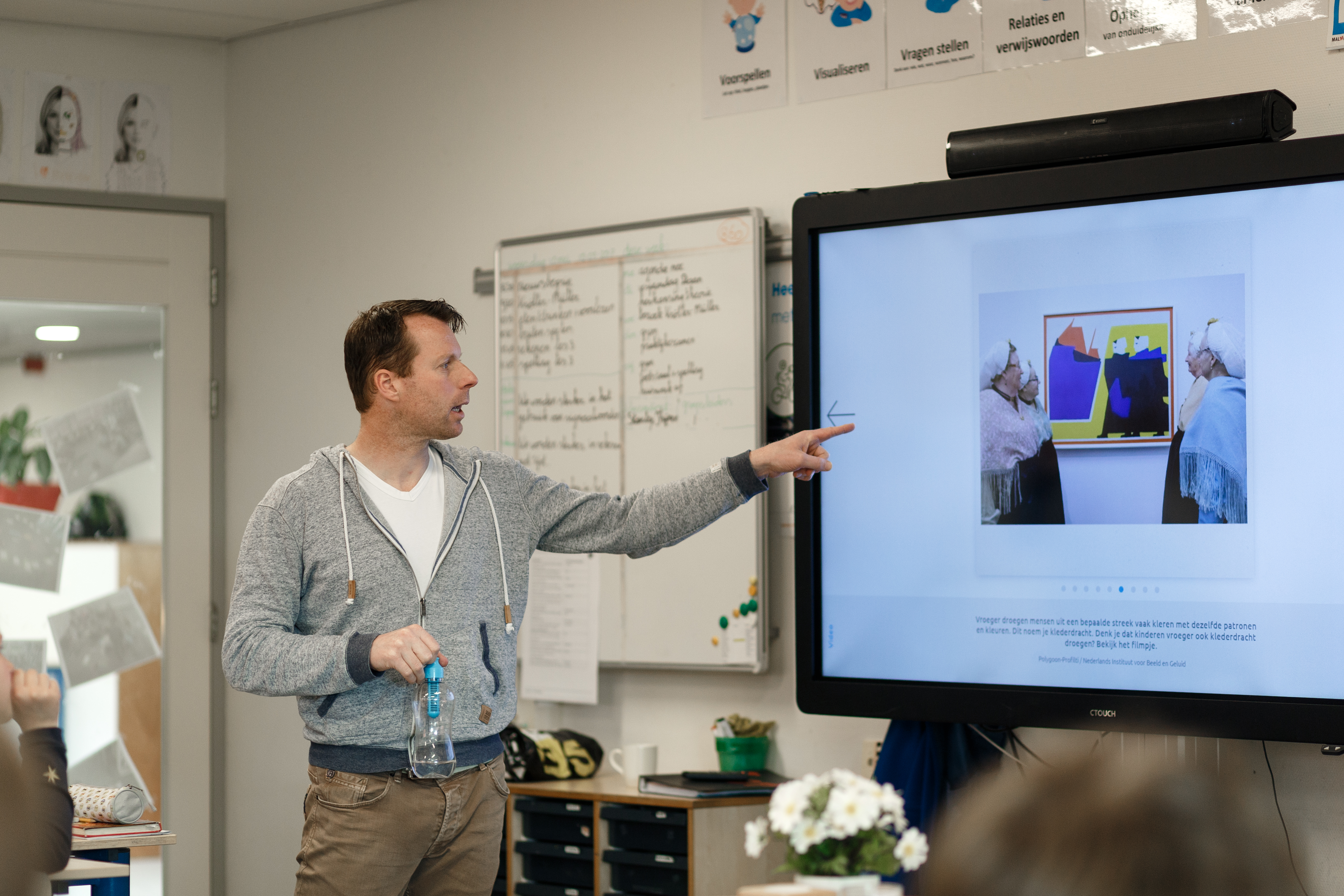Background
The platform was developed by the Kröller-Müller Museum in 2014 and won the Museum Education Prize in 2015. With the money from the Museum Education Prize, the Digital Block Calendar was developed from a proof-of-concept on a USB stick into an online platform that can be actively shared with other museums and cultural institutions. This platform received international recognition in 2019 when it won the prestigious ICOM International Best Practice Award.
The goal of the Digital Block Calendar is to introduce its users to art, culture and heritage in an accessible and playful way. Through simple observation tasks, philosophical questions, interactive games and creative processing assignments, the works of art are linked to other school subjects, current issues or personal themes.
The Digital Block Calendar lessons can be used as a conversation starter in the classroom, nursing home or language school without much preparation. The application is a 'cultural snack', which can be enjoyed at any time of the day, even without an accompanying art project or a planned museum visit. By building bridges between local history, current themes and the personal experiences of its users, the Digital Block Calendar provides a personal art experience outside the museum.
The platform is shared with various museums and municipalities (called hubs), which can add their own block calendars. 28 calendars from 16 hubs are currently online. There were nearly 9,000 visitors and over 14,000 sessions in 2021.

Renewal
After six years, the online platform is in need of renewal. The technology is outdated, causing problems with updating the website, integration with other services and security. Furthermore, the platform is now used by more target groups than it was originally developed for. In addition to primary education, the Digital Block Calendar is now used by secondary and language education, as well as by nursing homes and day care centres. To meet the needs of all these groups and to enable further development, the website has to be updated in terms of style, design and technology.
Together with the current or a new supplier, the museum and the hubs intend to work on a future-proof platform where the Digital Block Calendars can be easily developed and just as easily found by the end users. With the renewal of the platform, the Digital Block Calendar will also be better aligned with the museum's ambitions in the areas of inclusion, diversity and outreach. The new platform will be built according to the latest Web Content Accessibility Guidelines. This will ensure that the platform and the individual calendars will be more accessible to those with disabilities.
The new version of the Digital Block Calendar should be online by mid-April 2023. The goal is to continue to grow the platform thereafter. By 2026, the club will consist of at least 25 hubs and more than 40 calendars. The number of users will double in the first two years after launch and grow steadily thereafter.

